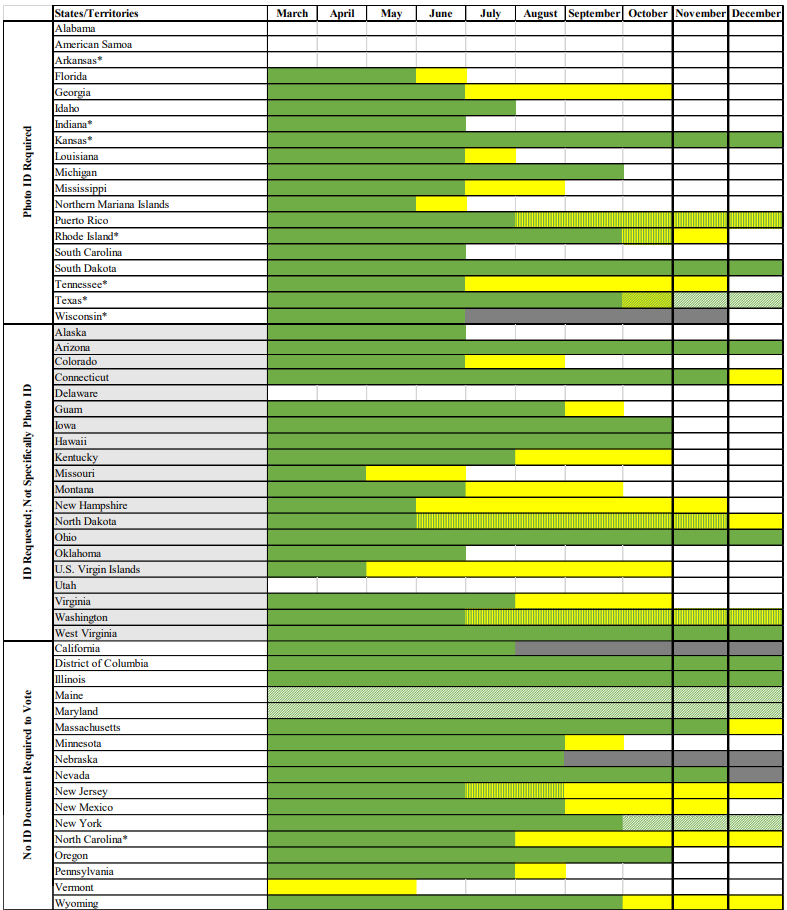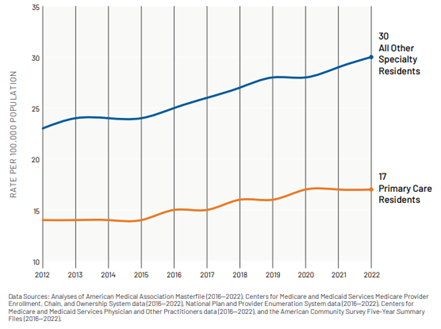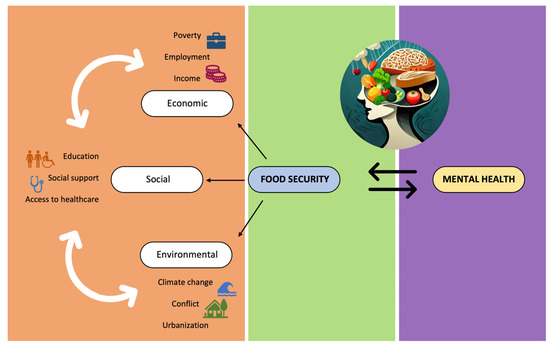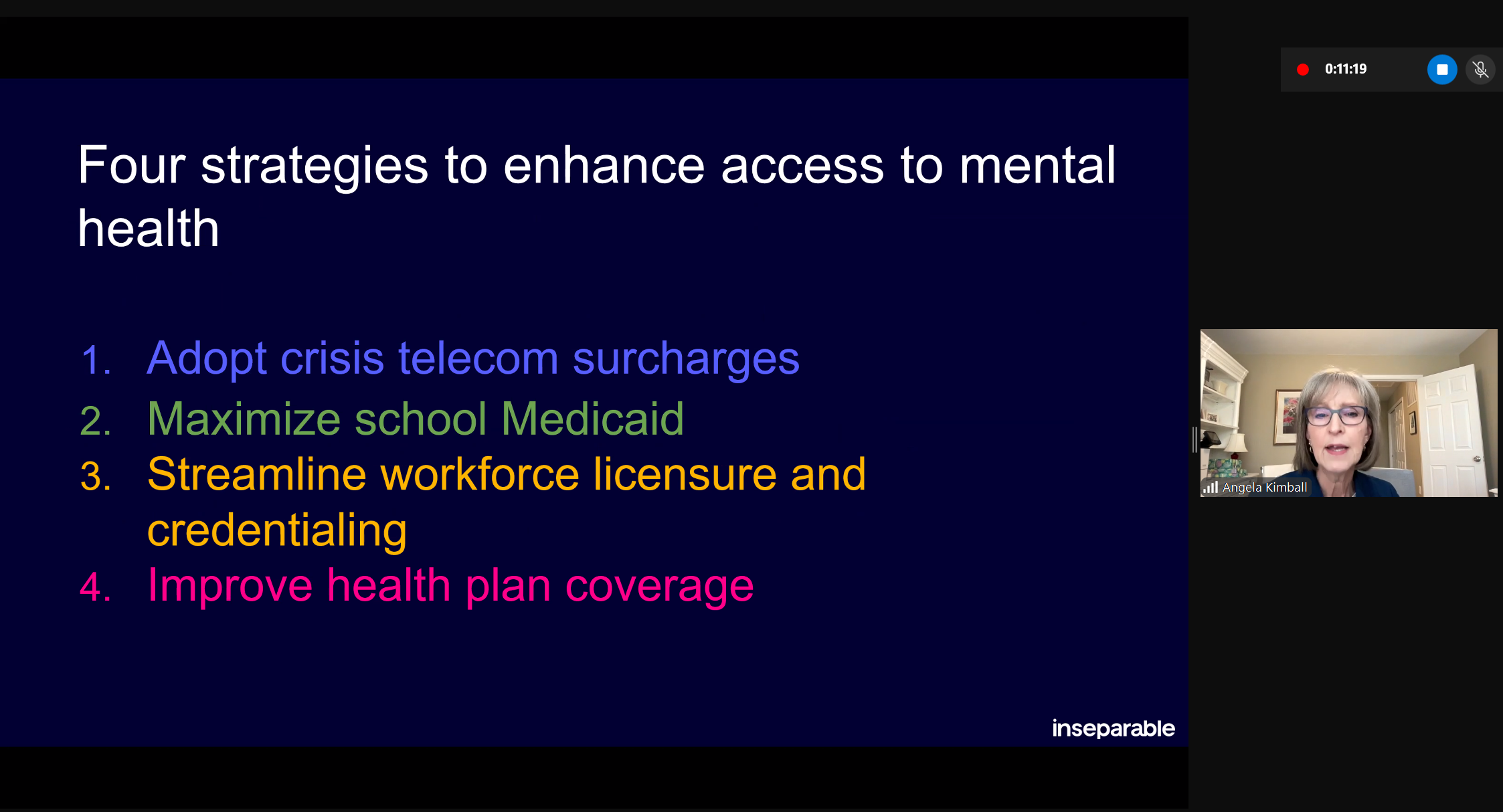The following document is intended to provide references to state statutes, regulations, executive orders, policies, and other resources that are currently in the public domain. This document is not an exhaustive list. This document primarily draws from publicly available information and, therefore, may not fully reflect the policy or practices of states and jurisdictions referenced herein.
As a result of the COVID-19 pandemic and resulting closures, nearly every state and territory has modified or restricted in-person services offered at driver’s license centers and, as such, has enacted extended grace periods for licenses that expire during this period. The length of these extensions varies, with some encompassing the initial shut-down periods in March and April, and others spanning the remainder of the year.
Importantly, in states and territories with voter ID laws, driver’s licenses are a primary form of identification used by voters. Of the 55 states and territories, 39, and Washington, DC, have voter ID requirements, of which 16 states and three territories specifically require the use of a photo ID. However, several of those states already have exemptions for allowing voters to use expired driver’s licenses. For example, in Indiana, voters can use an expired ID if it is dated after the most recent general election, in this case Nov. 6, 2018. In Texas, IDs remain valid for voting purposes for four years after the expiration date, and in North Carolina, residents aged 65 or older are able to use expired driver’s licenses if the license expired after they turned 65. Notably, several states have also recently expanded vote-by-mail and absentee voting options due to the pandemic, and some states also allow for the presentation of a non-photo ID document as proof of residency, such as a utility bill or rental lease agreement. Several states with voter ID laws also allow for a voter without a valid form of ID to cast a provisional ballot, to be verified at a later time.
For the upcoming general election on Nov. 3, 2020, there are 27 states and territories that will require the presentation of a non-expired ID in order to vote and do not have specific exemptions to allow for driver’s licenses that expired during the coronavirus pandemic.
Importantly, multiple Governors have announced additional extensions and exceptions to these rules as states continue to respond and adapt to the virus. Ahead of the primary election in Minnesota on Aug. 11, Governor Tim Walz announced that state-issued identification cards, including driver’s licenses and learner’s permits, that expired during the COVID-19 disaster declaration are to be considered as valid proofs of residency for the purposes of voter registration. Last month, the Illinois Secretary of State announced that the approximately 147,000 residents over the age of 75 with driver’s licenses expiring in 2020 have been granted an extension of one year.
Table of State and Territory Expired Driver’s Licenses (DLs) Exemptions


* States that have an exemption for at least some expired IDs.
Below are the state and territory rules on driver’s license expirations that have been enacted as a result of the pandemic, and the rules on the use of expired IDs for voting purposes, as compiled by the American Association of Motor Vehicle Administrators (as of Oct. 20, 2020) and the National Conference of State Legislatures, respectively.
For questions or requests related to the contents of this memo, please contact NGA staff: Jake Varn (jvarn@nga.org; 202-920-7453)
Driver’s License (DL) Expiration Exemption Policies -Voting Policies Bolded
- Alabama: Alabama DLs have a 60-day grace period following expiration date. Alabama DL holders are able to renew online once every eight years. Governor Kay Ivey announced in July that, due to COVID, expired licenses will be allowed to be renewed online a second time during a 12-year period.
- Alaska: DLs that expired during the pandemic period are valid until 7/30/20. CDLs expiring during the pandemic period will receive a six-month extension but they must file for an extension.
- American Samoa: No extensions at this time.
- Arizona: Any DL’s expiring between 3/1-12/31/20 will have an extended expiration date of one year past expiration.
- Arkansas: Arkansas is granting expiration waivers based on FMCSA guidance for regulations applicable to Commercial Driver’s License (CDL) holders. AR DOT is providing relief to motor carriers and individuals, fees for registration and licenses until 4/17/20.
For voting, IDs must not be expired by no more than four years. - California: Drivers under 70 years old with expiring DLs between 3/1/20 -7/31/20 were valid until 7/31/20. DLs can be renewed online or by mail. Drivers aged 70 and over with expiring DLs will receive an automatic one-year extension for licenses that expired 3/1/20 – 12/31/20. Learning Permits (LPs) expiring between 3/1/20 – 11/30/20 are extended six months or 24 months from date of application whichever is earlier. All CDLs and Commercial Learner’s Permits (CLPs) expiring between 3/1/20 – 9/30/20 now valid through 9/30/20. This extension does not include medical certs. Suspended licenses are not eligible. Temporarily waiving in-person renewals for DLs and ID cards with expirations 3/1/20 – 7/31/20. If DL is lost or stolen, you can request a duplicate if it does not expire within 30 days.
- Colorado: All credentials expiring from March to June 2020 have received an automatic 60-day extension.
- Connecticut: Driver’s licenses, ID cards and learner’s permits expiring between 3/10/20 – 5/31/20 are extended until 11/30/20. DLs, ID cards and learner’s permits expiring between 6/1/20 -11/30/20 are valid until 12/31/20. Effective 3/24/20, suspended the conduct of all administrative hearings at DMV facilities. Effective 3/20/20 for any person who moved to CT after 3/10/20 extended by 180 days the period of time that person has to obtain a license in CT. Effective 3/20/20 extended permanent disability placards that expire with any credential subject to a 180-day extension. Effective 3/20/20, waived all statutory deadlines associated with notice and the conduct of hearings; extended by 180 days compliance-based suspensions that are due to take effect between 3/10/20 – 6/30/20; waived violation and penalties associated with failing to meet 30-day recalibration of ignition interlock devices until 9/10/20.
- Delaware: Waiving late fees for driver license renewals until further notice
- District of Columbia: DMV has extended the expiration date for all documents expiring 3/1/20 through the duration of the public health emergency, including driver licenses, identification cards until 45 days after the health emergency concludes. As of 6/23/20, driver licenses and identification cards for new issuance, REAL ID & Out-of-State conversions can be completed in-person by appointment only. DL suspensions and revocations for minor violations are paused until DC DMV returns to full operating capacity.
- Florida: 60-day extension on DLs & IDs for expirations between 3/16/20 – 4/15/20. 30-day extension on DLs & IDs for expirations between 4/16/20 – 5/31/20.
- Georgia: Most GA driver’s licenses and ID cards with an expiration date between 3/14/20 – 6/30/20 automatically received a 120-day extension.
- Guam: DLs and ID cards that expired before 8/31/20 have been extended until 9/4/20.
- Hawaii: DL/IP/ID, along with CDLs and CLPs that expires between 3/16/20 – 10/30/20 are extended until 10/31/20. CDL’s and CLP’s that expire between 3/16/20 – 8/31/20 are granted an extension until 9/30/20.
- Idaho: DL/ID extensions ended 6/30/20. Must apply for renewal online or through county office. CDLs and CLP’s that expire between 3/16/20 – 12/30/20 are valid until 12/31/20.
- Illinois: All expired licenses, ID cards and Hazardous Materials Endorsements (HME) through 1/31/21 are valid until 2/1/21. Any 2020 expiration date for Illinois drivers age 75 and older has been extended for one year.
- Indiana: All expired licenses, permits and ID cards had to be renewed by 6/30/20.
For voting, IDs must have an expiration date after the most recent general election. - Iowa: Driver’s licenses that expired between 1/16/20 – 10/18/20 can still be used for driving purposes in IA. Beginning 10/19/20, (provided the proclamation is not extended again) all noncommercial driver’s licenses will be subject to the printed expiration date, and the 60-day grace period for driving on an expired license will resume as normal, applied to the original expiration date of the license. CDL & CLP expired 3/1/20 or later will be valid until 12/31/20.
- Kansas: All DLs and ID cards with expiration dates of 3/12/20 – 1/26/21 are extended to 1/26/21.
For voting, expired documents are valid if the bearer is aged 65 or older. - Kentucky: The 90-day expiration date extension for DLs/IDs ends 7/7/20. Cards with an expiration date between 3/18/20 – 7/7/20 are still under the March emergency order that automatically provides a 90-day extension to the card’s printed expiration date.
- Louisiana: Louisiana DLs and ID cards are able to be renewed online. Late fees for driver’s license are waived until 12/31/2020. Under Governor John Bel Edwards’ emergency proclamation, expiration date of DLs which expire on or after 3/9/2020, but on or before 6/5/2020, is suspended and the expiration date was extended to 7/31/2020.
- Maine: All DLs, Permits, ID cards, CDLs, Dealer Licenses, Salvage Motor Vehicle Recycler Licenses, Driver/Rider School Licenses and Instructor Licenses that expired after 3/15/20 have an extended waiver. Waivers will expire 30 days after the end of the emergency period. Driver license vision test requirements are waived during this period, which allows many driver license and State ID holders to use the online renewal service.
- Maryland: All driver licenses, ID cards, permits and registrations that expire or are eligible for renewal will not expire until the 30th day after the state of emergency has been lifted.
- Massachusetts: Driver’s licenses and ID cards that expired or will expire 3/1/20 – 5/30/20 now expire in September 2020. Driver’s licenses and ID cards that will expire in June have been extended until October 2020, those that will expire in July have been extended until November 2020, and those that will expire in August have been extended until December 2020. The specific expiration date typically coincides with an individual’s birth date. Customers holding a Registry of Motor Vehicle (RMV) credential marked “Limited Term” that has expired or will expire between 3/1/20 – 8/31/20 should visit Mass.gov/RMV for more information and to check the validity of their credential. Learner’s permits that expired or will 3/1/20 – 5/30/20 will now expire in December 2020. Learner’s permits that will expire in June, July and August will also be extended until December 2020. Professional credentials for School Bus Certificates, School Pupil Transport Licenses (7D), Inspector Licenses, Inspection Station Licenses, Driving Instructor Licenses and Driving School Licenses that have expired or will expire in March, April and May 2020 have previously been extended until 90 days after the State of Emergency is lifted. The RMV has added June expirations to the previous extension and professional credentials that expire in June have 90 days after the State of Emergency is lifted to renew.
- Michigan: DLs/CDLs/ID’s expiring after 3/1/20 have until 9/30/20 to renew
- Minnesota: DPS-DVS automatically extended expiration date for all DL/Permit/ID cards that expired between 3/13/20 – 8/31/20 until 9/30/20.
- Mississippi: All valid driver’s licenses, learner’s permits, and ID cards set to expire between 3/14/20 – 6/30/20 shall instead expire on 8/3/20.
- Missouri: There are no extensions in place at this time for DL or ID. DL expiring 3/1/20 – 4/30/20 were extended by 60 days.
- Montana: All Montana-issued Class D driver licenses that expired on 3/1/20 – 6/30/20 remain valid for an additional 90 days after their expiration date. All CDLs, CLP’s and MECs remain valid until 9/30/20. MEC’s will not be downgraded during this time. HME remains valid until 9/30/20 as long as CDL has not expired under the FMCSA waiver. MVD will report licenses as valid until 8/28/20 and then after that date will show licenses with their original expiration dates.
- Nebraska: All expired driver licenses, State IDs, and permits must be renewed by 8/31/20 in order to remain valid. This does not apply to drivers age 72 and older whose license is due to expire between 3/1/20 and 12/31/20. These drivers will automatically have their license extended for one year from the expiration date printed on the license. All expired CDLs must be renewed by 8/31/20 in order to remain valid.
Beginning 10/1/20 drivers will have the option to print their temporary license at home. - Nevada: All licenses, permits and ID cards expiring between 3/12/20 – 11/12/20 have until 11/12/20 to renew. Drivers 65 or older who need to renew their license have been granted a one-year extension.
- New Hampshire: DL and non-driver identification cards that are expired or set to expire between 3/1/20 – 5/31/20 will now be eligible for a six-month extension. Must call in to apply.
- New Jersey: All driver licenses, driver permits and non-driver IDs expiring before 5/31/20 have been extended to 9/30/20. Documents expiring in June – August are extended until 12/31/20. On 8/7/20, Governor Phil Murphy extended the time for individuals to apply for renewed disability placards, until 90 days after the last day of the public health emergency.
- New Mexico: DLs expiring 3/11/20 – 8/31/20 received a 90-day temporary license emailed.
- New York: All licenses and learners permits with an expiration date of 3/1/20 or later are extended until further notice.
- North Carolina: Credentials expiring between 3/1/20 – 8/1/20 have been given a one-time, five-month extension (from the original expiration date) to renew driver licenses and handle vehicle registrations. Any fines and fees related to expired credentials are being temporarily waived. Customers who already paid a $15 fee for a late renewal in March or April will be reimbursed.
For voting, IDs are valid if expired for one year or less, or the bearer is over age 65 at time of expiration./strong> - North Dakota: DLs which expired March, April and May extended until 9/30/20. DLs that expired in June extended until 10/31/20. DLs that expired July, August, September or October extended until 11/30/20. DLs that expired in November and December extended until 12/31/20. CLP/CDL expirations have been extended until 8/31/20. Medical cards valid as of 2/29/20 extended until 9/30/20.
- Northern Mariana Islands: The Commonwealth of the Northern Mariana Islands Department of Public Safety Bureau of Motor Vehicle (BMV) extended recently expired DLs and vehicle registrations without penalty, as of 3/16/2020. All expired driver’s licenses have a grace period of 30 working days after the expiration date for renewal before a $20 penalty fee is owed. Select BMV services resumed on 5/11/2020.
- Ohio: DLs, CDLs and ID cards expiring during the emergency shall remain valid until 90 days after the declared emergency ends or 12/1/20, whichever is sooner.
- Oklahoma: 30-day extension for all class D driver licenses, commercial licenses and handicap permits that expired 30 days prior to the Governor’s executive order notice. All extended expiration dates of class D driver licenses, state issued ID cards, handicap parking placards, commercial licenses and commercial learner permits will be considered expired after 6/30/20.
- Oregon: All DLs, permits and ID’s expiration dates have been extended through 10/1/20. All CDLs and CLP’s expiring between 3/1/20 – 9/29/20, now expire on 9/30/20.
- Pennsylvania: Driver’s licenses, photo ID cards and learner’s permits with expiration date between 3/16/20 – 7/31/20 are now extended through 8/31/20. Effective 10/1/20, CLPs and CDLs scheduled to expire from 3/16/20 – 11/29/20 are extended until 11/29/20.
- Puerto Rico: Effective 7/7/20, expiration dates for driver licenses and identification cards that expire in March, April, May, June, July, August, September, October, November and December 2020 will be extended.
- Rhode Island: Driver Licenses, including CDLs, permits, disability parking privilege placards and school bus certificates expiring from March 2020- September 2020 have been extended to October and November.
For voting, IDs remain valid if expired within the last six months. - South Carolina: Extensions to credentials (DL/ID) that are due to expire 3/1/20 – 6/30/20. All of these documents are considered valid through 6/30/20 and are considered expired as of 7/1/20. Treat all CDLs and CLPs with expiration dates from 3/1/20 through 11/14/20, as valid until 11/15/20.
- South Dakota: DLs, CDLs, CDL permits, motorcycle licenses, permits, and ID cards expired on or after 3/13/20 extended expiration through 12/30/20.
- Tennessee: All Class D, M, PD, PM and ID licenses and handgun permits set to expire between 3/12/20 – 6/29/20 have had their expiration extended to 11/15/20. This does not apply to an individual with a Class X license. Anyone whose license expires 7/1/20 or later, will expire on their current expiration date. Any new resident to Tennessee who established residency 6/1/20 or after, is required to comply with the 30-day statutory requirement to obtain a Tennessee license. New TN residents and new drivers should complete the Driver License Application in the e-Services before visiting a Driver Services Center. The application is available in the e-Services portal of the Department of Safety website and can be completed on a computer or smartphone. The Department is waiving the requirement that citizens appear in person and have a new photograph taken through 10/1/21. Non-U.S. citizens with a temporary driver license or temporary photo identification license, (Class XD and XID) will still need to visit in person to renew those licenses upon expiration of the current license.
For voting, expired IDs are accepted. - Texas: Extensions granted for all card types for 60 days after state of disaster has ended.
For voting, IDs are valid if expired by no more than four years. - U.S. Virgin Islands: All driver’s licenses and identification cards that expires as of 5/1/20 will be extended for a period of six months from the expiration date.
- Utah: Qualifying driver license renewal applicants may renew online. Appointments for all licensing services are available and can be scheduled online.
- Vermont: 90-day extension of expiration date, effective 3/16/20.
- Virginia: DL/ID Extensions credentials that expire on or before 7/31/20 are extended 180 days, but not to exceed 10/31/20. DL/ID extensions credential holders originally expiring between 8/1-10/31/20 will have an additional 60 days to renew. Credentials expiring 11/1 – 11/29/20 will have until 11/30/20
- Washington: DLs and LP’s set to expire 3/1/20 – 9/30/20 have been extended in 90 day increments. DLs and LP’s set to expire 10/1/20 – 12/31/20 will be extended 90 days. New date will appear in records, but a new card will not be issued. CDL and CLP’s that expired on or after 3/1/20 are extended until 12/31/20. Drivers should carry expired documentation. Medical certs that expired 3/1/20 – 5/31/20 are valid until 10/31/20. Medical Certs that expired on or after 6/1/20 are valid until 12/31/20.
- West Virginia: All DLs, CDLs, instruction permits including commercial permits and CDL med certs with an expiration date on or after 3/1/20 are extended until 12/31/20.
- Wisconsin: All DLs for drivers under 60 whose license expired during public health emergency had until 7/25/20 to renew. Drivers over age 60 whose license expired after 3/12/20 now have until 11/23/20 to renew their license. All CDL expiration dates extended until 9/30/20. Affected drivers have until 10/29/20 to complete Hazmat renewal.
For voting, DLs are valid if expired after the date of the most recent general election. - Wyoming: 180-day grace period for all DL/ID with expiration dates between 3/15/20 and 9/30/20.
All NGA COVID-19 memos can be found here, or visit COVID-19: What You Need To Know for current information on actions States/Territories are taking to address the COVID-19 pandemic; as well as advocacy, policy, and guidance documents for protecting public health and the economy.












